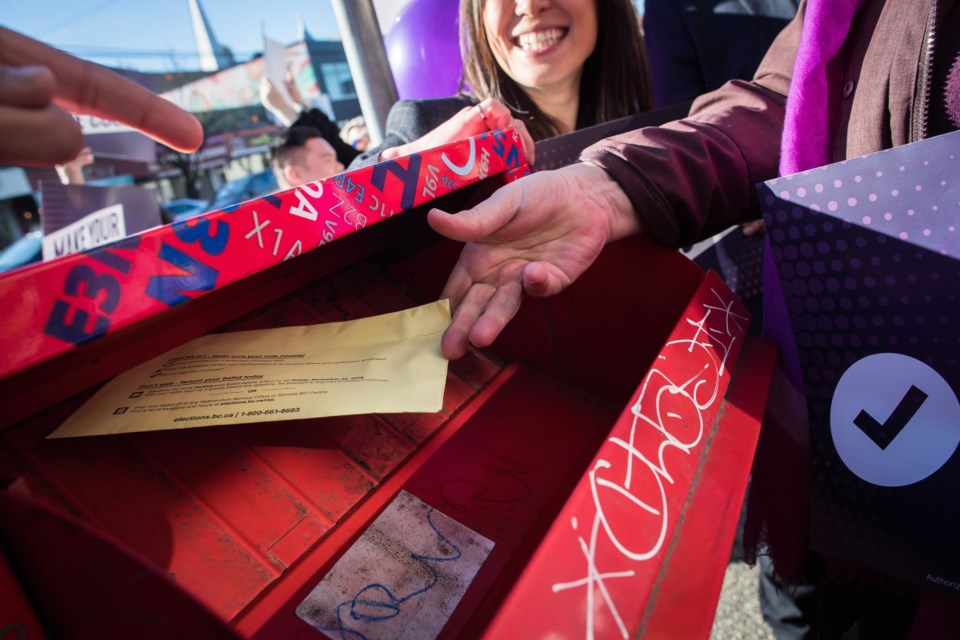Whether a government is chosen through a first-past-the-post system or any of the iterations of proportional representation, the critical ingredient to any credible system is that it holds the confidence of the electorate.
It is not difficult to find faults with any of the systems. Unfortunately, the current debate in British Columbia about which system should work best for us has focused almost exclusively on those faults. To be sure, FPTP inevitably results in confrontational politics with the main parties campaigning on the edges but being driven to the middle when forming government — what older NDPers used to call the “Tweetle Dee and Tweedle Dum” phenomenon.
And experience has shown that extreme views are provided greater longevity and budgets under PR and at times have allowed a tyranny of sorts where mainstream or centrist politicians are held hostage to radical fringes. Historians have argued that it was the stability provided by their respective FPTP systems that allowed large democracies such as Great Britain, the United States, Canada and Australia to better weather the tumultuous interwar years while countries such as France, Germany, Italy and Spain were torn apart by street fighting among relatively smaller Communist and fascist parties.
It’s worth noting that since 1945, both systems have worked well in providing cohesive societies with developed social-welfare systems that seem to serve the needs of the vast majority of the populations of, for example, North America and Europe. In the post-war era, people living in what was called the First World believed so much in constitutional institutions, the rule of law and fundamental principles of democracy, they not only went out in large numbers to vote but they built military alliances and infrastructure designed to fight for these values.
This infrastructure is now under stress. Europeans are expressing concern that with the ascendancy of the first generation with no direct link to the bloodshed of the 20th century — post-war baby boomers are now great-grandparents — there is a danger the reasons for the sacrifice will be forgotten.
Changing a voting system will not stop that. The current process to amend the voting system is a partisan effort to boost the fortunes of certain parties rather than an altruistic movement to enhance the rights of voters. That this overhaul is taking place just as domestic and particularly foreign interests are aggressively acting to discredit democratic institutions is akin to opting for radical cosmetic surgery in a badly contaminated operating theatre.
But the cynical motives of politicians do not alleviate the electorate of the need to be involved. They are not the ones in charge, we are. Democracy, after all, is the Greek word for power resting with the people, and with power comes responsibility.
I have a daughter who is an officer in the navy and has served this country since she was a teenager. She looked at her voting package and lamented: “It doesn’t matter which system I choose. The politicians will continue to make promises to get elected, then break their word once they are in office.”
I spent a career in journalism covering politicians and know this to be both true and false. Canada is the country it is because politicians have historically campaigned on ideology but generally ruled on circumstance and evidence, as long as voters were willing to hold them to account.
As flawed as is the process, there is no wrong answer in the package. British Columbia deserves an electoral system that the electorate believes in. Read the package, pick a favourite and mail in the ballot.
And we must remember that even refusing to make a decision is a decision. It means we are willing to surrender the demo part of our democracy and pass the power to a class of people we claim not to trust.
Gerry Klein lives in Maple Bay.



